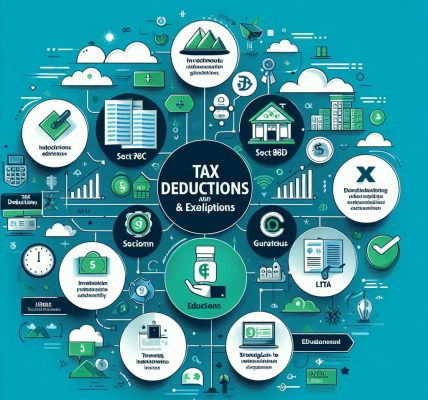Tax law is a crucial part of any country’s legal system, governing how individuals and businesses contribute to public revenue. Taxes fund essential services such as healthcare, infrastructure, and national defense. However, understanding tax law can be complex due to its ever-changing nature and the various types of taxes imposed by governments.
In this comprehensive guide, we’ll break down tax law, its different categories, and key principles, helping you understand your obligations and rights as a taxpayer.
What is Tax Law?
Tax law refers to the legal rules and regulations that dictate how taxes are assessed, collected, and enforced by the government. It covers various types of taxation, including income tax, corporate tax, sales tax, property tax, and more. These laws ensure that governments receive the necessary funds to function efficiently while preventing tax evasion and fraud.
Tax laws vary by country and jurisdiction, but they generally aim to balance revenue collection with economic growth and fairness.
Key Components of Tax Law
Tax law comprises several elements, each serving a specific purpose in regulating taxation. Some of the most important components include:
1. Income Tax Law
Income tax is levied on individuals and businesses based on their earnings. In most countries, income tax is progressive, meaning higher earners pay a higher percentage of their income in taxes. Key aspects include:
- Personal Income Tax: Paid by individuals based on salaries, wages, or self-employment earnings.
- Corporate Income Tax: Paid by businesses on their profits.
- Deductions & Credits: Governments allow deductions (such as business expenses) and credits (such as child tax credits) to reduce tax liability.
2. Sales Tax and Value-Added Tax (VAT)
Sales tax and VAT are indirect taxes imposed on goods and services at the point of sale. While sales tax is applied once at the final sale, VAT is collected at multiple stages of production and distribution. Some key points include:
- Sales tax rates vary by state or region.
- Exemptions exist for essential goods like food and medicine.
- Businesses collect and remit these taxes to the government.
3. Property Tax
Property tax is levied on real estate based on the property’s value. It is usually collected by local governments to fund schools, emergency services, and infrastructure projects. The key considerations include:
- Assessment of property value determines tax amount.
- Exemptions or reductions may be available for seniors or veterans.
- Failure to pay property tax can lead to legal penalties or property seizure.
4. Corporate Tax Law
Corporations must adhere to specific tax regulations based on their structure (e.g., LLC, S-Corp, C-Corp). Important aspects include:
- Corporate tax rates differ from personal tax rates.
- Companies may have tax benefits through deductions and offshore structures.
- Failure to comply with tax laws can lead to hefty fines and legal action.
5. Estate and Inheritance Tax
These taxes are levied when assets are transferred after death. While not all countries impose estate or inheritance taxes, those that do have specific thresholds and exemptions.
- Estate tax is paid by the estate before assets are distributed.
- Inheritance tax is paid by beneficiaries receiving assets.
6. International Taxation
For individuals and businesses operating across borders, international tax law determines how income is taxed. Key aspects include:
- Double taxation agreements (DTAs) prevent being taxed in multiple countries.
- Foreign tax credits can offset taxes paid to another country.
- Tax havens and offshore accounts may be legally complex.
Common Tax Law Principles
Understanding some fundamental tax law principles can help taxpayers navigate their obligations more effectively:
1. Tax Compliance
Every taxpayer is required to file accurate tax returns and pay their taxes on time. Non-compliance can result in penalties, audits, or legal actions.
2. Tax Avoidance vs. Tax Evasion
- Tax Avoidance: Legal strategies used to minimize tax liabilities (e.g., using deductions and credits).
- Tax Evasion: Illegal actions taken to hide income or underreport earnings to avoid taxes, leading to severe penalties.
3. Progressive vs. Regressive Taxation
- Progressive Taxes: Higher income earners pay a larger percentage (e.g., income tax).
- Regressive Taxes: Lower-income individuals may bear a higher burden relative to earnings (e.g., sales tax).
4. Filing and Reporting Obligations
Taxpayers must report their income and expenses accurately. Governments provide various tax forms and deadlines for individuals and businesses to comply.
5. Tax Relief and Benefits
Many governments offer tax relief programs, including deductions for education expenses, home ownership incentives, and retirement savings benefits.
How to Stay Compliant with Tax Law
Tax laws can be complex, but staying compliant is crucial to avoid legal troubles. Here are some tips:
- Keep detailed financial records.
- File tax returns before deadlines.
- Take advantage of available deductions and credits.
- Consult a tax professional for guidance.
- Stay updated on tax law changes.
Conclusion
Tax law is an essential part of governance, ensuring that individuals and businesses contribute to the functioning of society. By understanding the basics of tax law, taxpayers can fulfill their obligations while taking advantage of legal tax-saving strategies. Staying informed and compliant will help avoid legal issues and maximize financial benefits.
If you need more detailed guidance, consulting a tax professional or attorney is always a smart move to navigate complex tax laws effectively.




